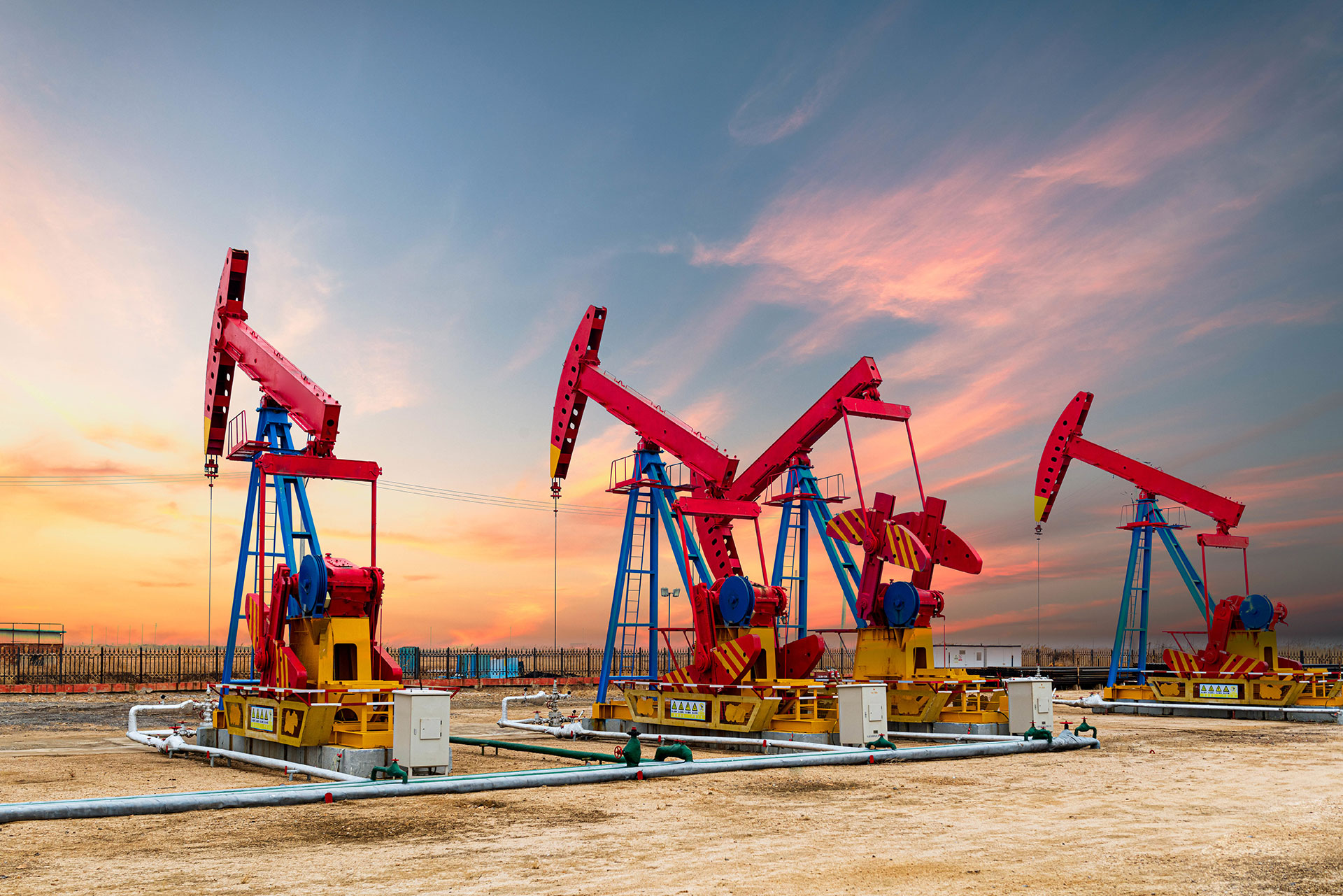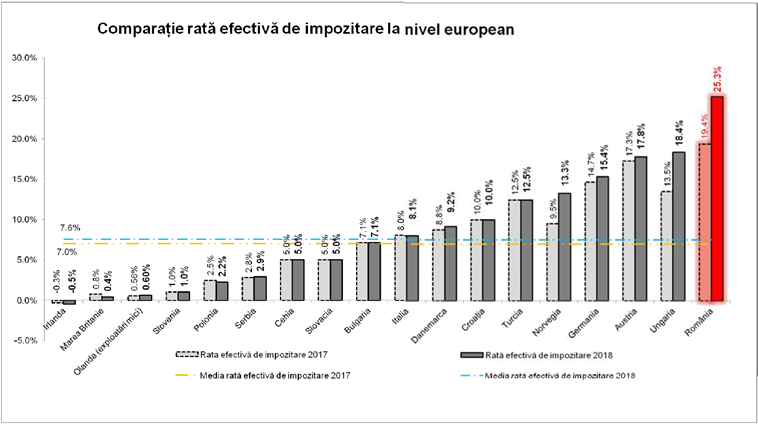One of the ways to hinder the economic development of a nation is to manipulate public opinion through a nationalist discourse detached from the economic reality of today. "Foreigners are coming to milk our land" or "We are giving away our natural gas for nothing. Better to keep it in the ground" - these are just two examples of the messages frequently circulated regarding the natural gas sector. How wrong are such statements spread in the public space and why such a mindset is detrimental to the development of a country blessed with resources, we will explain below.
Local natural gas resources have contributed to the development of the Romanian economy and society for more than a century. Thanks to these resources, Romania could be proud of European firsts leading to economic progresssuch as:
- Europe's first natural gas pipeline (1914)
- first city in Europe to be lit by natural gas (1917) - Turda
- the first country in Europe to use natural gas for industrial purposes (1933)
Since its early stages, the development of the Romanian oil and gas industry was made possible by the contribution of private companies, mostly with foreign capital, which invested financial resources to capitalize on these resources. In the local oil industry, the first company with foreign capital was an Anglo-Turkish company set up in 1864 - "Walachian Petroleum Company", which is drilling the first wells in the Țintea and Moreni basins. "At the beginning of the 20th century, the capital invested in oil exploration was predominantly foreign(....) In 1925, 224 companies with a nominal capital of 11.5 billion lei were operating in the oil industry, of which about 35% Romanian capital", the paper states "Romanian oil and natural gas. History in pictures" (Ed. AGIR, 2021).
"Experience in this sector meant that in the 20th century the national economy relied heavily on the oil and gas industry. It should also be emphasized that industry-specific legislation has also kept pace with the times. There were key moments when the country's legislators understood the responsibility of their moment to anticipate a global trend for this industry and to facilitate our country a leading place in a race that continues today.
This is the only way that the Romanian oil and gas industry has been able to record numerous world and European firsts over a century and a half and the Romanian economy has seen a strong upswing in terms of job creation, substantial revenues for the state budget, substantial investing in research and innovation and, last but not least, to creating a education system with an undeniable international reputation", note the authors of the paper.
And today, this industry remains one of the main supporters of the local economy and is one of the biggest contributors to the state budget, both through sector-specific taxes (royalties, additional taxes on profits) and dividends, or general taxes and duties.
Concession of resources, the business model chosen by the Romanian state
In Romania, the concession of mineral resources is made through Mining Law no. 85/2003, which provides:
- "This law regulates mining activities in Romania, stimulating the exploitation of mineral resources, public property of the state. The law ensures maximum transparency of mining activities and fair competition without discrimination between forms of ownership, origin of capital and nationality of operators.
- Mining investment is encouraged through tax and administrative incentives, free from any constraints as regards the recovery of investments and the use of realized profits.
- Mineral resources located on the territory and subsoil of the country and the continental shelf in the Black Sea economic zone of Romania, delimited in accordance with the principles of international law and the regulations of the international conventions to which Romania is a party, are the exclusive object of public and private property. belong to the Romanian state".
So the Romanian state, which owns the natural resources by law, concessions them to interested companies in return for fees that become revenue for the state budget.
- "Mining concession is the legal operation whereby the State, represented by the competent authority, as grantor, transmits for a fixed period a person, as a licensee, the right and the obligation to carry out, at their own risk and expense, mining activities related to mineral resources falling within the scope of this law, in exchange for a mining royalty for exploitation and a tax on prospecting, exploration and exploitation of mineral resources," the Mining Law states.
The activity of concession of oil and gas resources is regulated by Oil Law 238/2004, which states: "The oil resources located in the subsoil of the country and the Romanian continental shelf of the Black Sea, delimited according to the principles of international law and international conventions to which Romania is a party, are exclusively subject to public ownership and belong to the Romanian state.
Petroleum is the combustible mineral substances consisting of mixtures of natural hydrocarbons accumulated in the earth's crust and which, under surface conditions, occur in gaseous form as natural gas or in liquid form as crude oil and condensate."
Electricity lawe and natural gas 123/2012 states that "public property assets related to natural gas transportation and storage objectives/systems, as well as natural gas transportation, storage and distribution services are subject to concession to Romanian or foreign legal entities, under the conditions of the law".
Cătălin Niță, Executive Director of the Federation of Oil and Gas Employers (FPPG), recently explained in "Romanian Energy in the New Economy" debate, that this method of concession of oil perimeters is practically the business model chosen by the Romanian state:
"We have to understand that Romania owns every resource deep in the earth. The fact that the state has chosen as its business model to auction concessions for various deposits, so that they can be exploited and the state can supplement its revenues through royalties or specific taxes, this is the way the state has deemed necessary. So we don't sell our country, we don't give our resources to foreigners to do I don't know what with them, but the state is carrying out a plan. This is the model by which we capitalize on the resources God has given us in this territory."
Journalist Mihai Nicut, specialized in the energy sector, said, in a profile program, that "we have this tendency to think that anyone who comes to exploit what is considered a public good is automatically despoiling us".
"We have this fear, which we have somehow ancestral, that the foreigner is coming to steal from us and as such we should protect ourselves. The second perception that we cannot get rid of is the feeling that the resources of this country are a kind of public good and as such we have to take them out and use them ourselves, without it being clear what this we means. It is a continuation of the perception of the times we lived in and the inability to adapt to a normal market context. The gas is a resource, obviously owned by the Romanian state, which is concessioned, the investor pays the costs, takes out the resource, sells it on the market, pays the state the taxes he has to pay and that's the game"added the journalist.
Multi-level benefits for society from resource recovery
In exchange for the concession of the fields, the main benefits of supporting the local gas industry are:
- significant state budget revenues
- numerous medium and highly skilled jobs
- high long-term investment
- energy security
In terms of state budget revenues from the energy sector, OMV Petrom is the largest contributor to the state budget, with about 35 billion euro representing taxes, levies and dividends paid between 2005 and 2021. In the same period, has invested around €17 billion, according to data published by the company.
A study by Biriș Goran ("The state of the Romanian upstream gas taxation system", September 2019) showed that, in 2018, the level of taxation applied in Romania the upstream (exploration and production) sector as a whole was the biggest in Europe. Analyzing tax burden on natural gas producers, which can be measured by dividing activity-specific taxation by total revenues from gas production, specific effective tax rate in the case of Romania accounted for 25.3% of total upstream natural gas revenues. It stood at almost triple the average of the other countries included in the analysis (from 7.6%).
Study conducted by Biriș Goran for FPPG more underlines specific characteristics upstream oil and gas industry:
Significant upfront costs. Significant payback time
- Upstream natural gas activity involves significant upstream costs (costs of exploration, appraisal, investment in equipment and infrastructure needed to develop fields) over a generally long period, followed by a significant payback period after production starts (a decade or more), with these characteristics being more pronounced in offshore developments.
Uncertainty
- At the exploration stage, there is always a risk that investors may not identify commercially exploitable deposits (the success rate being a rather low 25%).
In terms of jobs, in any industry, no matter how technologized and digitalized, people are the key resource. The complexity of the natural gas sector also means a high need for highly qualified specialists, such as geologists, engineering specialists, chemists and others.
Domestic natural gas production thus contributes to keeping talent and highly-skilled people in the country. I am tens of thousands of direct jobsnot to mention the direct and indirect impact on other industries. "Labor productivity in oil and gas is more than four times higher than average labor productivity in the economy. This goes some way to explaining the relatively large indirect and induced impact that the oil and gas industry has on the economy", says the study "The contribution of the oil and gas industry to Romania's economy" by the Consilium Policy Advisors Group (CPAG) in 2021.
What are resources worth if they are not extracted?
Therefore, the role of the state and the national interest is to maximize, under the given conditions, the use of natural resources and to provide operators, without discrimination, the right conditions for investments in production, so that they are realized. "We say we have natural gas. We don't, they are theoretical ours. If we don't get them out of the ground, they're nobody's, they're a chimera"said journalist Gabriel Avăcăriței.
For now, Romania still has natural gas. But onshore fields are mature and well productivity is falling. The transition to a net-zero economy is also putting pressure on the use of these fossil resources, which is expected to be limited in the coming decades.
Beyond any economic calculation, a strategic calculation should take precedence, including geopolitical advantages, market risks and windows of opportunity.






